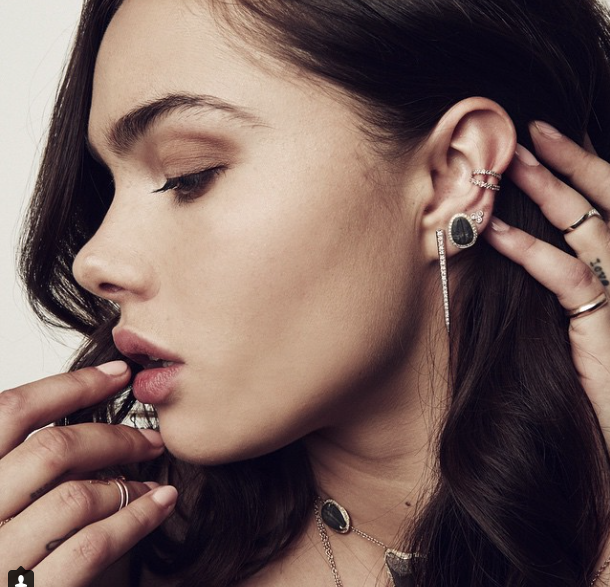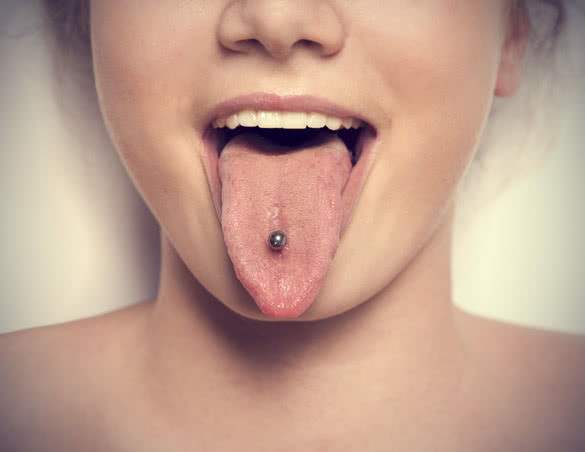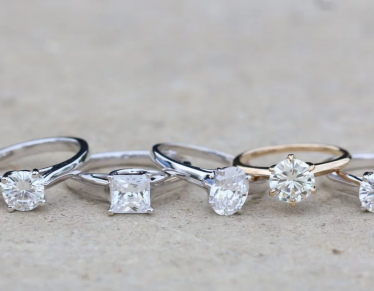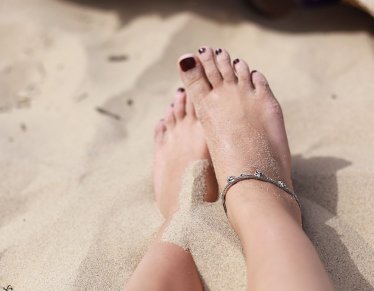If getting a needle through your own flesh doesn’t make you feel extremely nauseous and dizzy then congratulations! You are probably capable of getting your body pierced.
But these spontaneous decisions are not always a clever idea though.
You see, it seems incredibly easy on paper to just go and get a piercing from whichever place seems suitable and reasonable for you. But in reality, there are a couple of things you should keep in mind before getting a brand new piercing. These things might only occur to you once you have already gotten it done, so it’s better that you get prepared.
Read on to find out what are the basic steps you must follow before getting a piercing.
Do Your Research
And by that we mean go and meet with your potential piercing specialist beforehand. It’s important that you go to an experienced piercing specialist with a professional setup. If you find yourself in a shady part of the town inside a small hut that’s been held up with some sticks and tarpaulins, getting out of there stat is a good idea. Don’t ever gamble with your health because of money. Save up if you need to, but always go to the professionals to do your piercings as there are severe health risks involved.
Ask Questions
If you are planning to make a commitment, it’s better to be well prepared. Ask your specialist exactly what kind of aftercare comes with the procedure. Depending on the body part you choose to pierce, the aftercare regimen can differ vastly. For example, getting your ears pierced and then taking care of them is a relatively easier method than taking care of a belly button piercing. So it is always a good idea to judge before you take the leap to make sure that you are ready for that kind of commitment.
Check If the ‘Gun’ Has Been Sterilized
Even if you go to a professional piercer, it is your right to check if they sterilize the machines after every use. Most professional parlors doing such piercings will have an autoclave machine to do so. An autoclave machine basically uses high temperature with steam to sterilize the gun between every use. This ensures that the previous user’s bacteria or body fluids or anything else doesn’t transfer to you. You can ask your piercer to show you the process so that you know you are getting proper care. Also, the autoclave machine needs to be monitored regularly with a yearly checkup by a professional.

Again, don’t take this point lightly. Getting pierced with unsterilized needles can lead to diseases such as Hepatitis A, B, and C or many sort bacterial infections. In severe cases, it might even lead to HIV or AIDS. Believe it when we say, you can never be too careful.
Let Your Conditions Be Known
While asking your piercers the important questions, it is also advisable that you let them know of any health/skin conditions you might have beforehand. For example, if you are allergic to any sorts of metal, you should definitely mention that. There are options available such as hypoallergenic earrings for people with such conditions in order to save you from the trouble afterward.
Got An Infection? Put If Off
That’s right. Getting your body pierced while you are already carrying an open wound or infection is never a good idea. When getting a piercing, basically a needle is going through your body, and you can call it a wound as well. When you get a new piercing, the previous infection can easily get transferred to the new wound. It can happen with your hands or your surroundings such as bedding, clothes etc.
Also, it’s wise to keep in mind that a new piercing will take longer to heal if your body is not healthy as it is directly related with your immune system.
Eat
Eat within 2 hours of your piercing appointment to keep the body healthy. Chances of getting nauseous are enhanced when you are hungry. This becomes even more important if you are getting an oral piercing. You can feel a little faint once the piercing has been done because of the adrenaline. If you have food in your body during this time, it means that your blood sugar levels will help the body with the nerves and adrenaline.
Clean Yourself Up
This should be a given for your piercer’s comfort alone, but going to get the piercing done with a clean body is also essential for yourself. If you are not clean yourself, especially regarding the area where you are getting the piercing done, then chances of attracting an infection automatically rise. Even if your piercer does all the necessary steps of getting the equipment clean, it still can lead to an infection if you are not.
Be Aware of Medical Issues
If you have any sorts of health problems such as diabetes or anything else that might have weakened your body’s immune system, you should think twice before getting pierced. A weak immune system equals to higher chances of getting infected.
The healing time will also be prolonged than usual. Consider letting your piercer know in advance so that they can give you proper advice on how to deal with the condition.
Lifestyle Matters
We are social beings and thus we need to adhere to societal norms. Getting an eyebrow or tongue piercing might be your lifelong dream, but if you work in a setting that follows rigid uniform rules, you might even risk losing your job. Consider how a piercing might bring changes to your lifestyle.

In addition to that, you must remember that piercings are pretty permanent. So what might be making you look edgy in your early 20s might not be suitable for your 30s. Taking out piercings constantly is not advisable by most professional piercers, as it can increase the chances of infection. It is even more crucial for new piercings. And if you are a sportsperson, adding a piercing in an exposed area might not be the best idea for you as jewelry can easily get snagged by cloths and what not. Not only will it hurt when it happens, it will also injure your skin and cause an infection.
Think It Through
In tune with the previous point, it is also a good idea to think it through before you get that piercing. A piercing is as permanent as a tattoo, even though it doesn’t feel like that. Yes you can easily stop wearing jewelry and let the hole close up but there will still be scars or small indentations left behind. And as we’ve mentioned before, different types of piercings need different kinds of aftercare so take that into consideration as well.
In Case of Discomfort, Go See Your Piercer First
If the new piercing has been hurting or looking a little weird, go see your piercer first rather than scheduling a doctor’s appointment right away. Chances are they have already seen people with situations same as you so they will have better advice than the doctors anyway. Doctors, in general, don’t know much about piercings, and you should only visit if your piercer says so.
There are real-life accounts where doctors just ruled out any discomfort of a new piercing as an infection and put the patient on antibiotics immediately.
And Hold Onto Your Horses
Don’t jump to the conclusion that any and every little discomfort that comes hand in hand from getting your body pierced is the sign of an infection. Infections tend to be rarer than you might assume. A pierced part might be hurting, sinking a little onto the skin or even be oozing out some gunk but it doesn’t mean it’s been infected. In most of these cases, the piercing might just be irritated. Another thing to remember, you can get an infection only if it’s an open wound, which generally falls in the first 2-3 weeks of piercing.
Be Patient
Once you get a piercing, it’s common to feel excited to put on new jewelry but sit tight for just a little bit longer. Once again, a piercing is essentially a wound, which is attached to an object your body is not used to. Give your body some time to get accustomed to it. It is best to leave the original jewelry for at least a month or two, or even longer for best results.
A body piercing can be a discomforting experience since it will hurt for sure. But it is also a manageable and an interesting procedure to go through if you are well prepared. By taking into account the necessary steps before making that final leap, you can make the procedure a lot smoother and easier for your body and yourself.
We would say communication is the key here. Just do your research and find a professional in whom you can trust your body with. Then let that person know about your conditions and follow the advice accordingly. I think with this list of things to do before getting yourself pierced, your journey will be a fun one.




